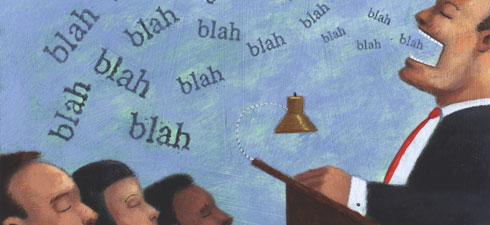Outraged demonstrators have failed to come up with a clear narrative of the new economy, the new society, or the new man that is supposed to supplant the l'ancien régime. Each therapy recommended seems less than well rounded, and none inspire enough confidence to trust them fully.
After 1917, Russia found its magic formula: put all the power in the hands of political commissars and a single party, and nationalise everything that moved. In the United States in 1932 the New Deal was the chosen way: bigger government, and public works to boost the economy. In 1933, Germany applied a similar logic, with the aim of war on top of it: take from your enemies and share out among your own people, get the armaments industry up and running to spur the economy, and the conquests will cover the costs. One Reich, one Nation, a Supreme Commander...
After 1945, new mantras were easy to find. In the East the slogans were: nationalisation, heavy industry, centralised economic planning. The individual is nothing, the party is all. In the West: make the most from state aid, create communities with your former enemies, set up a social market economy, nurture pluralism and the free market but keep tabs on it all the same – and don’t hesitate to bring in high taxes to finance the social benefits that will ensure social stability.
This model of thinking proved its effectiveness in western Europe, where it guaranteed a level of prosperity and individual freedoms that all the ideologies from the nineteenth century tradition benefited from: liberalism, conservatism, socialism. In the 1970s the welfare state, in its Social Democratic or Christian Democratic guise, was the perfect role model for people in countries where “real socialism” reigned.
Religious rhetoric
There is no road back to that model. The economy is based on trust in its rules, the fact that the value of one commodity may, thanks to money, be traded for another commodity. Before the crisis the big players in the financial markets relied on advanced technology that was supposed to minimise the likelihood of a collapse.
But when that collapse happened all the same, they cited the Stoics, saying that the future is unpredictable, and called on governments to bail them out. The outraged citizens drew on religious rhetoric, blaming greed and avarice – avaritia, one of the deadly sins in Christianity – and cried out for repentance.
There is no way back to the proven models of the past. No simple way ahead, either. The traditional ideologies have lost their power of persuasion. Of course, one can always defend the thesis that the advent of the post-ideological era is only a manifestation of the so-called dominant neoliberal ideology, which deliberately blurred the differences between left and right, between socialism and conservatism, to better establish its hegemony. However, it must be admitted that the widespread feeling today is that it’s not ideologies pushing the wheel of history, but quite different factors – namely, the markets.
Weakening of traditional parties
The traditional ideologies were children of the Enlightenment belief that the world is malleable and that man can shape to his will and to his rational plans. However, to keep people believing in a project, it has be backed up by a thrilling narrative, an almost biblical tale of an expulsion from Paradise and the entry into the Promised Land. For conservatives, that would be a return to the golden age. For Marxists, back to the classless society. For a nationalist, a national state that stands by its people. For a liberal, a realm of freedom. Intellectuals, the traditional manufacturers of ideologies, do not believe in the existence of a mighty lever capable of lifting the foundations of the world.
However, this is not the end. The end of ideology is obviously not the end of the politics. This latter is treading its own path, but with some shortness of breath. The traditional ideological parties like the Christian Democrats, the Social Democrats, Liberals and Conservatives, are weakening. The erosion of ideology is eroding political loyalties. The very acceptance of the party system is lacking in a context where political parties are struggling to mark out their difference and where controversies seems to be artificially staged and do nothing but fuel the narcissism of the main players.
The winner in this kind of populist anger has no plan, and no vision of the future. He also knows very well that this is not what matters to his followers. In the old ideological movements anger was concentrated, and a collective ethos was easy to create out of resentment. Today’s populism is all about a quick discharge of frustrations and tensions. It sparks riots and destruction, but nothing more. It will give birth to no new Lenin, Stalin or Hitler.
If one recalls the catastrophes wrought by the ideologies of the twentieth century, it is certainly not the worst situation to be in. But it’s not the best either, as the ideological crisis comes accompanied by a fundamental crisis of confidence in politics. Changes in the personalities at the top seem random. While the political theatre of our time is not leading to states ruled by tyrants, it is not generating any statesmen either.
Was this article useful? If so we are delighted!
It is freely available because we believe that the right to free and independent information is essential for democracy. But this right is not guaranteed forever, and independence comes at a cost. We need your support in order to continue publishing independent, multilingual news for all Europeans.
Discover our subscription offers and their exclusive benefits and become a member of our community now!












